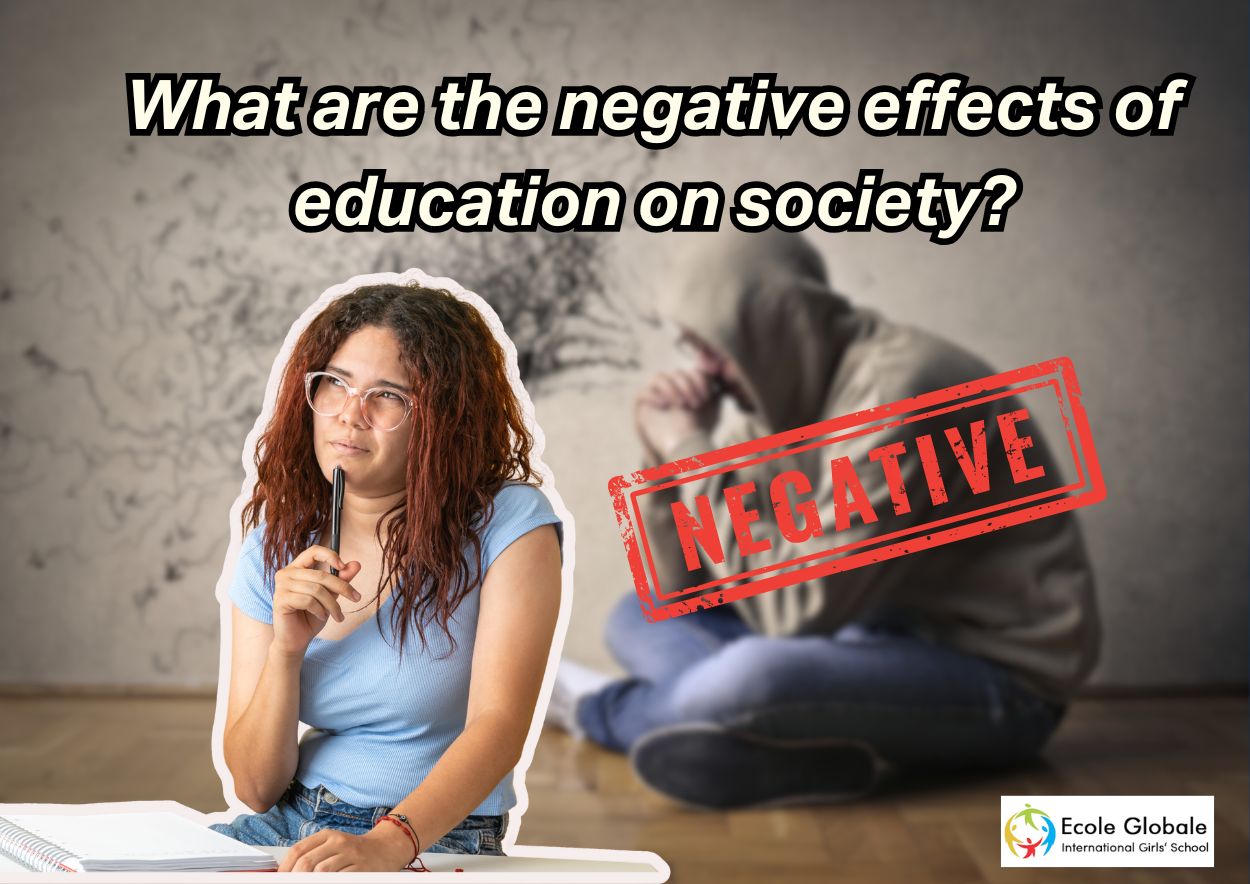I’m sure you all have had some form of education. Maybe you’ve gone to college, maybe you just had some high school courses, or maybe you are a self-teacher. But what about the flip side? What about the negative effects of education on society?
I’m sure there has to be more than just our high school teacher trying to take jobs away from us. Do we really need all these textbooks and articles? Is it really a good thing that colleges have inflated their costs over time? Why does the government feel so strongly about funding education at all levels?
Negative Effects of Education on Society

1. Economic Disparities
One significant negative effect of education on society is the perpetuation of economic inequalities. Access to quality education often depends on socioeconomic status, leading to a cycle where wealthier families can afford better educational resources, tutoring, and extracurricular activities.
2. Mental Health Issues
The pressure to perform academically can lead to serious mental health issues among students. High expectations from parents and institutions contribute to stress, anxiety, and depression. The competitive environment in schools and universities can create a toxic atmosphere where students feel constant pressure to excel, often at the expense of their mental well-being.
3. Loss of Cultural Identity
Standardized education systems can sometimes undermine local cultures and traditions. The emphasis on a universal curriculum may neglect the importance of cultural diversity, leading to a homogenized society where unique cultural identities are diluted.
4. Overemphasis on Standardized Testing
An overreliance on standardized testing is another negative effect of education on society. It often leads to teaching to the test, where educators focus primarily on exam performance rather than holistic learning. This approach stifles creativity, critical thinking, and problem-solving skills, which are essential for personal and societal advancement.
5. Environmental Impact
The education sector contributes to environmental degradation through the extensive use of resources. Schools and universities consume significant amounts of energy, produce waste, and require large amounts of paper and other materials.
As per research conducted by a top girls boarding school in Dehradun, education has been promoted as a cure for social ills ever since the modern concept of schooling was conceived. It is still highly regarded as the key to individual success, culture, morality, and even economic prosperity: as one prominent economist famously proclaimed in the 1980s “human capital is now the most important form of capital”.
Mitigating the Negative Effects
Addressing the negative effects of education on society requires a multifaceted approach:
- Promoting Equity: Ensuring equal access to quality education for all socioeconomic groups can help break the cycle of poverty and reduce economic disparities.
- Mental Health Support: Integrating mental health services and fostering a supportive educational environment can alleviate stress and improve student well-being.
- Cultural Inclusivity: Incorporating diverse cultural perspectives into the curriculum can preserve cultural identities and promote societal harmony.
- Balanced Assessment Methods: Reducing the emphasis on standardized testing and incorporating diverse assessment methods can enhance holistic learning and critical thinking.
Firstly, in order for an individual to attend college, they must have the financial means to do so. This can lead to a high amount of student debt which can follow the individual for many years after graduation and can even prevent them from being able to purchase a house or car.
Thirdly, As per the research by the students of girls boarding schools in India education has positive effects on society as well such as lower crime rates and less poverty.
This is because educated people tend to commit fewer crimes because they understand what is right and wrong, which leads them not to do anything illegal or dangerous like drug use etc.

But if we see it from another angle, it is not possible for a society to progress if its members are uneducated. Education makes people civilized and disciplined and thus helps them in living a good life. So, it will be unfair to say that education has negative effects on society.
The negative effects of education on society on society is that it makes people more intellectually confused and culturally debased.
The most “popular” people in society are often those who are morally bankrupt but have become well-known for some reason or other, such as musicians who put negative effects of education on society
For any queries related to parenting, schooling, or any student-related tips, click here to check out our latest blogs
FREQUENTLY ASKED QUESTIONS
Q1: How do I create an effective timetable for study for a student at home?
Ans: Assess your current schedule, set clear academic goals, prioritize subjects, allocate specific time blocks for study, and include regular breaks.
Q2: How many hours should a student study at home each day?
Ans: Quality matters more than quantity. Aim for 2-4 focused hours, adjusting based on individual needs and academic demands.
Q3: Should the timetable for study for a student at home be the same every day?
Ans: While consistency is beneficial, it’s okay to adjust the schedule to accommodate different subjects or activities, ensuring flexibility.
Q4: How can I ensure my child follows the study timetable at home?
Ans: Involve your child in creating the schedule, set achievable goals, and include breaks and leisure activities to maintain motivation.
Q5: What if the current study timetable isn’t effective?
Ans: Regularly review and adjust the timetable to better fit the student’s learning style and commitments.






